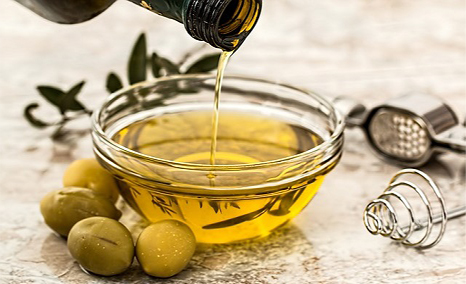OLIVE OIL, A NATURAL WEAPON TO DEFEND US FROM CANCER
Nutrigenomics and extra virgin olive oil are a natural weapon to defend ourselves from cancers and other diseases.
Research has shown the importance of extra virgin olive oil (OEVO) to our health.
Nutrigenomics is a fairly recent, very complex science that studies the interaction between food and genetics, opening up new horizons in medicine. In DNA there are certain genes called oncogenes that are normally inactivated. They do not work thanks to the action of other genes. In cancer cells, on the other hand, oncogenes activate and cause uncontrolled cell proliferation. The onset of tumors can be affected by both endogenous substances from the body such as hormones and exogenous substances such as chemicals and food

Diet can therefore play a major role in tumors, both in favoring them (too many calories and fats, alcohol), and in contrasting them (antioxidants, vitamins).
Animal-borne dietary fats are rich in the fat and polyunsaturated acids of the series Ω6 while vegetable fats contain monounsaturated and polyunsaturated fatty acids from the series Ω3. Vegetable fats have a protective effect against tumors, as demonstrated in people from the Mediterranean areas where the incidence of breast and colon cancer is lower than in northern Europe as a result of the use of olive oil.
Extra virgin olive oil (OEVO) contains many substances which act on biological genes and mechanisms that help us defend ourselves against many diseases. An all-Italian study published in 2016 in the International Union of Biochemistry and Molecular Biology Journal, explains how OEVO, which is a typical food from the Mediterranean diet, can benefit DNA by acting on genes involved in age and lifestyle-related diseases such as cancers, cardiovascular and neurodegenerative diseases.
Numerous scientific studies are carried out to identify the effects of certain components of olive oil (such as antioxidants) on the DNA of patients and healthy subjects. The polyphenols contained in OEVO act on certain genes responsible for performing functions that defend the body from inflammatory processes by preventing atherosclerosis, neurodegenerative diseases (Alzheimer’s) and tumors.
The study published by Menedez (BMC Cancer) tested several oil components (mainly polyphenols) on cancerous breast cells. Results showed that polyphenols blocked the action of the HER2 gene that stimulates the proliferation of cancer cells. Scientific studies ‘in vitro’ (performed on cells) need further validation but reveal discoveries and new information on the action of molecules and substances.
A study published in the Journal of Nutritional Biochemistry shows that OEVO increases the action of the tumor suppressor gene CNR1 (oncogene inactivator) by decreasing the risk of developing colorectal cancers. This gene decreases the onset of gene mutations sensitive to environmental factors, such as diet.
OEVO decreases important risk factors for cardiovascular disease as it contains antioxidants such as vitamins B, E and carotenoids, which protect cells and vessel walls. OEVO maintains low cholesterol levels, triglycerides, keeps blood pressure under control and is indicated in diabetes as it decreases post-prandial blood sugar spikes.
The World Cancer Research Fund International (WCRF) recognizes the ability of vitamin E and polyphenols which are contained in OEVO to reduce DNA damage, decrease cancer cell growth and increase cancer cell self-destruction in vitro studies.
Although it is perhaps still too early to convert the results of studies into nutritional advice, the findings provide new perspectives on the mechanisms by which extra virgin olive oil could help reduce the risk of cancer.
Finally, two recommendations: consume extra virgin olive oil daily, without exaggerating as it is very caloric, and choose good/excellent quality, rich in polyphenols.
GLOSSARY
Polyunsaturated fats from the series Ω6: linoleic acid found in sunflower oil.
Polyunsaturated fats from the series Ω3: a-linolenic acid found in high-fat fish and vegetable oils.
HER2: a gene that produces a protein placed on the membrane of cells that has the function of promoting cell grow.
CNR1: Gene with genetic alterations (mutations) in patients with colorectal cancer.


